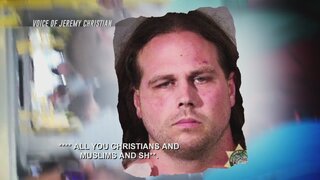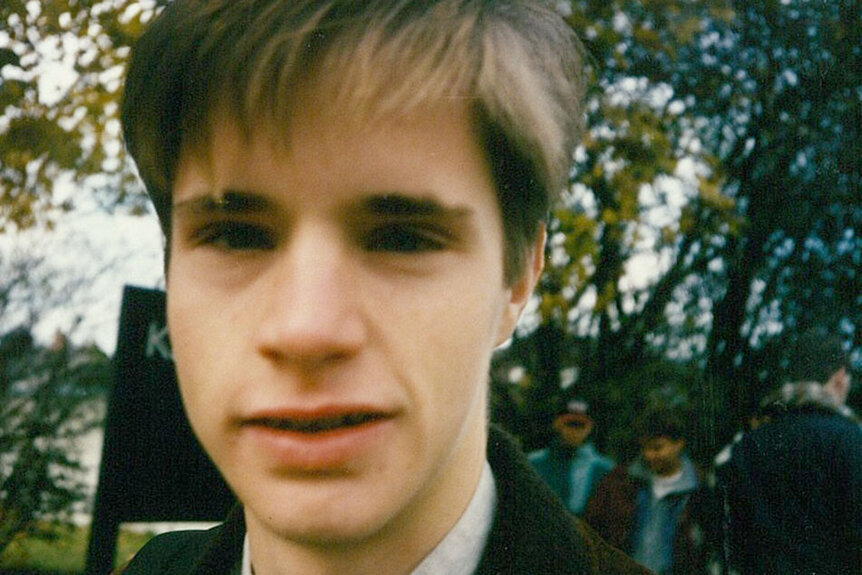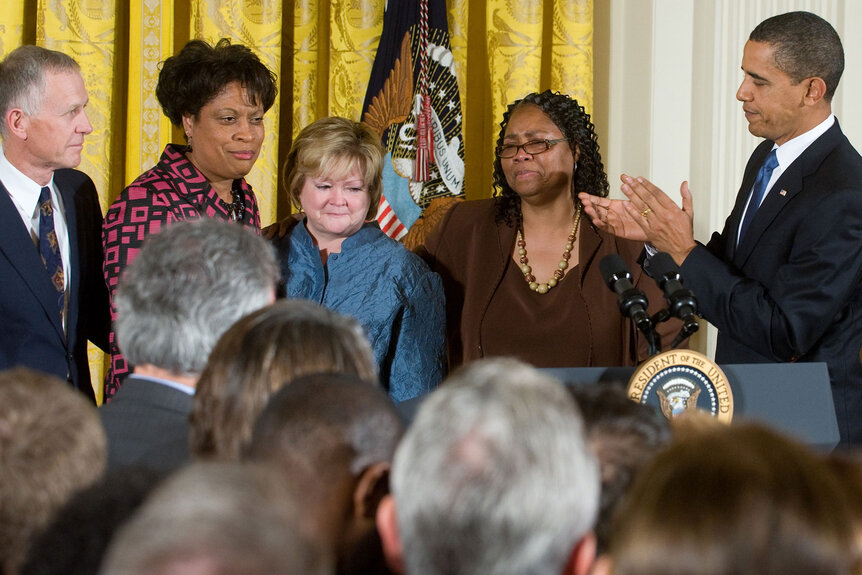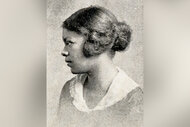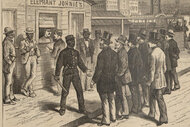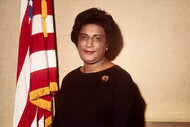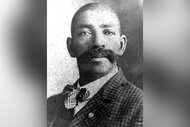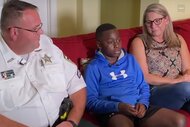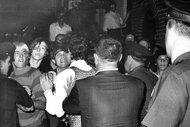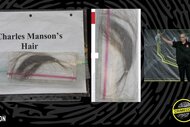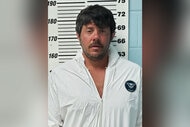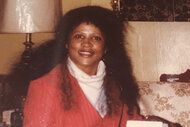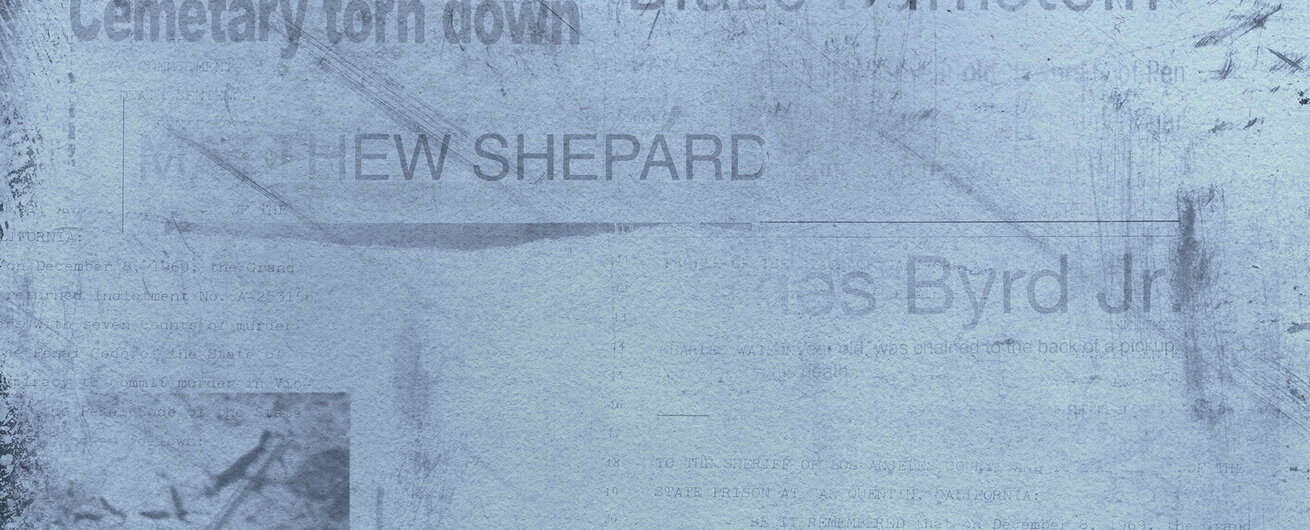Create a free profile to get unlimited access to exclusive videos, breaking news, sweepstakes, and more!
Have The Most Brutal Hate Crimes Sparked Any Change For The Better?
Horrific hate crimes like the murders of James Byrd Jr., Matthew Shepard, Blaze Bernstein and Heather Heyer sow terror and outrage — but some of them also sparked change.
Hate crimes are intended to divide. They target individuals to sow fear among certain communities, be they LGBTQ people, Black Americans or immigrants. The last three years have seen an unprecedented rise in hate groups and extremists, as they are emboldened to make their messages more public and plan violent attacks, using the relative anonymity of social media.
But hate crimes can also have the unintended consequence of bringing people together to affect change.
In Oxygen’s new special, “Uncovered: Killed By Hate,” the harrowing stories of some of the worst hate crimes in our country’s recent memory will be told, graphically and powerfully. But viewers will also meet survivors, including family members, intended victims and advocates who rose above the hate and worked to further protect marginalized communities.
1998: Ground Zero For Federal Hate Crime Law
Violence, hatred and tribalism are in the DNA of our country’s history — with lynchings, church bombings and the brutalization of the gay community being recent examples. However, the concept of a hate crime as something that can be categorized and legislated against only came out from journalistic language and congressional debate into the public consciousness in one crucial year.
On June 7, 1998, James Byrd, Jr., a 49-year-old black man, was walking down a road in Jasper, Texas, when he was offered a ride by three white men. Byrd accepted, but was brought to a remote, wooded area and attacked, according to CNN. He was beaten. His face was spray-painted and his attackers — John William King, 23, Lawrence Russell Brewer, 31, and Shawn Allen Berry, 23 — even defecated on him, according to Inside Edition.
And Byrd’s ordeal was only beginning. The three men — two of whom were open white supremacists — tied him by his ankles to their pickup truck with a 24-foot length of logging chain and dragged him for three and a half miles, until his body literally came apart.
Byrd was alive for much of the dragging, detailed in court documents, until the moment his head and right arm were torn off when his body hit a culvert. A forensic pathologist testified at trial that Byrd’s cheek, buttocks and toes were ground down to the bone — injuries he was almost certainly alive and conscious for, given evidence that he was trying to hold his head above the ground throughout the ordeal.
All three were convicted after five days of testimony and two and a half hours of jury deliberations, according to The Washington Post. Brewer and King — who had been “most exalted cyclops” of the Confederate Knights of America — received the death penalty. Berry was sentenced to life.
Months later, on Oct. 6, Matthew Shepard, 22, was approached in a Laramie, Wyoming, bar by two men who thought the 5-foot-2 gay student would be an easy target for robbery. Aaron McKinney and Russell Henderson lured Shepard into their truck and drove him out to a remote area at the edge of town, according to the BBC.
They pistol-whipped Shepard inside the truck with a .357 Magnum, then tied him to a log fence with a clothesline and continued pistol-whipping him before leaving him bleeding, in near-freezing temperatures, where he’d hang for 18 hours until a passing bicyclist found him. Albany County Sheriff Dave O’Malley would later compare Shepard’s injuries to those he’d seen in high-speed car crashes.
Shepard would die six days later of his injuries, with his parents, Judy and Dennis by his side. Henderson and McKinney were convicted of first-degree murder, and both got two consecutive life sentences, according to CNN. They would not face hate crime charges because nothing in Wyoming or federal law covered those offenses. The public outrage over Shepard’s torture and murder, however, quickly spread nationally, and quickly got the attention of president Bill Clinton, who would condemn it and press for new hate crime legislation.
Still, the road to progress would be long.
A Decade Later
Not until 2009, two presidential administrations later, would the federal hate crimes bill bearing both Shepard and Byrd’s names be signed into law. President Barack Obama, joined by James Byrd’s sisters, Louvon Harris and Betty Byrd Boatner, and Matthew Shepard’s mom, Judy, signed the Matthew Shepard James Byrd Jr. Hate Crimes Prevention Act on Oct. 28, 2009, according to the New York Times.
“This is the culmination of a struggle that has lasted more than a decade,” Obama said. “Time and again, we faced opposition. Time and again, the measure was defeated or delayed. Time and again, we’ve been reminded of the difficulty of building a nation in which we’re all free to live and love as we see fit.”
The bill added a person’s sexuality, gender identity or disability under the federal definition of hate crime, and gave federal prosecutors greater ability to go after alleged hate crimes that local authorities did not.
The bill faced past Republican opposition — including a threat by President George W. Bush to veto it — and thus was tacked onto a defense bill, according to Fox News.
Judy and Dennis Shepard maintained this year that the country still has miles to go toward protecting the LGBTQ community. LGBTQ advocacy group Human Rights Campaign said that so far in 2019, 19 transgender people have been killed, and that more stringent hate crime reporting is needed, as well as local laws to protect vulnerable communities where the feds may fail.
The Heather Heyer Foundation and Blazin’ It Forward
Two notorious recent hate crimes claiming young, promising lives have resulted in families springing into action to combat hate.
When a neo-Nazi rammed his car into a crowd of people protesting a white-supremacist rally in Charlottesville, Virginia, on Aug. 12, 2017, 35 people were injured, according to the Washington Post, and activist Heather Heyer, 32, lost her life.
James Fields Jr., 21, was convicted of first-degree murder in state court in December 2018, according to the Post. This spring, he was also convicted of federal hate crime charges, and will spend the rest of his life in prison.
Heyer was remembered as a passionate activist who stood up against “any type of discrimination,” the New York Times reported. She headed to Charlottesville that Saturday out of a sense of duty to protest the white supremacists and neo-Nazis gathering under the pretense of protesting the planned removal of a historical statue.
Her last Facebook post read, “If you’re not outraged, you’re not paying attention.”
Since her death, Heyer’s mother, Susan Bro, has started a non-profit foundation to provide scholarships for people who want to make positive, nonviolent social change, focusing on the fields of law, social work, social justice and education.
“I think that’s what we have with Heather’s legacy, is a call to action,” Bro told NPR in August 2018.
In 2018, the foundation awarded scholarships to three students, including one graduating from Charlottesville High School.
The second hate crime occurred on Jan. 10, 2018, when University of Pennsylvania student Blaze Bernstein, 19, was found half-buried in a shallow grave in Orange County, California, according to NBC News. His family and friends had been searching for him for eight days when his body was found — stabbed multiple times.
It only took two days for authorities to make an arrest: Former high school classmate Samuel Woodward, 20, was charged, and law enforcement suspected the murder of the gay, Jewish man was a hate crime. In August 2018, prosecutors added a hate crime enhancement to the murder charge, based on evidence they found on Woodward’s laptop and cellphone, the Daily Pennsylvanian reported.
Woodward told investigators at the time that Bernstein had tried to kiss him, the Orange County Register reported. He was also later linked to the violent neo-Nazi group Atomwaffen, according to Frontline-ProPublica reporting.
Woodward’s case is still in the pre-trial phase, according to Frontline-ProPublica. He has pleaded not guilty, and denies the charges.
Bernstein’s family, however, has pushed through his death and started a nationwide, social media-based movement promoting random acts of kindness as an antidote to the hate that may have taken his life. Jeanne and Gideon Bernstein started a hashtag — #BlazeItForward — but also spearheaded collection efforts to feed the hungry, according to the Los Angeles Times.
“Blaze was a really special human being,” Jeanne said at a food bank event in January. “His story resonates with people. [Volunteers] are also making an announcement that they’re saying no to intolerance, and they’re making a positive change.”
The “BlazeItForward” Facebook page today has more than 26,000 members, sharing stories of people helping others, thanking others for help and reaching out for help with volunteer efforts. Its stated goal is to “make the world a better place with one intentional kind act at a time.”
On Oct. 16, the Merage Jewish Community Center of Orange County shared on the page that it was launching the Blaze Bernstein School of Culinary Arts, as a tribute to Bernstein’s love of cooking.
For more on the brutal murders of Matthew Shepard, James Byrd, Blaze Bernstein and Heather Heyer — as well as the 2017 Portland train attack — don’t miss “Uncovered: Killed By Hate,” on Oxygen, where viewers will meet the families, survivors and advocates fighting the scourge of hate crimes to this day. “Killed By Hate” airs Sunday at 7/6c.


